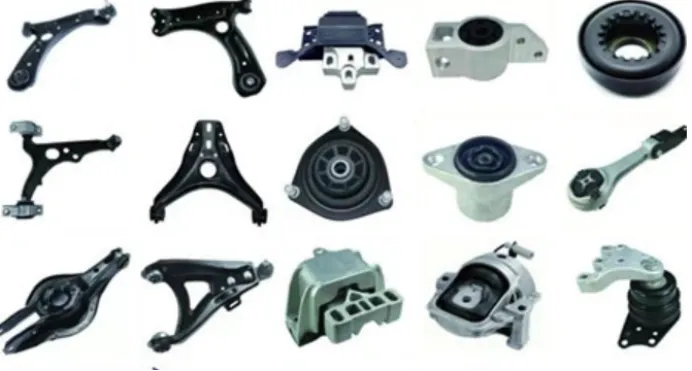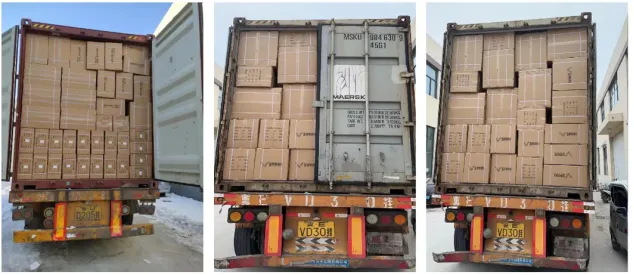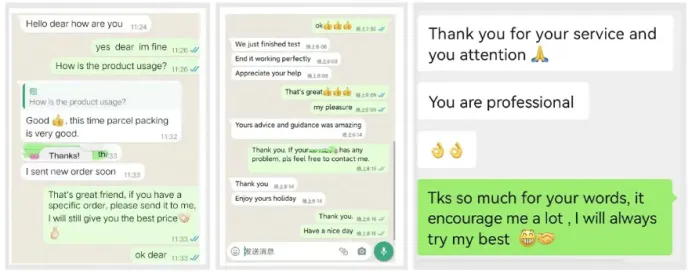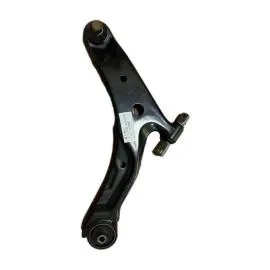The control arm, also known as an A-arm or wishbone, is a crucial component in modern automobiles that plays a vital role in the vehicle's suspension system. The main function of the control arm is to connect the wheel hub and steering knuckle to the chassis of the vehicle, allowing for smooth and controlled movement of the wheels.
The production process of a control arm involves several steps. First, the design of the control arm is created using computer-aided design (CAD) software, which allows for precise measurements and specifications. Next, the control arm is typically manufactured using high-strength steel or aluminum alloy, which are both durable and lightweight materials. The control arm is then forged, machined, and welded together to create a strong and reliable component.
Once the control arm is produced, it is installed in the vehicle's suspension system, where it plays a crucial role in maintaining control and stability. The control arm helps to absorb shocks and vibrations from the road, ensuring a smooth and comfortable ride for the driver and passengers. Additionally, the control arm helps to keep the wheels aligned and in proper contact with the road surface, improving handling and overall performance.
Overall, the use of modern control arms in automobiles has greatly improved the safety, comfort, and performance of vehicles on the road. By connecting the wheels to the chassis and supporting the suspension system, control arms play a key role in ensuring that vehicles can handle various road conditions with ease. Thanks to advancements in materials and manufacturing processes, control arms are now more durable and reliable than ever, making them an essential component in the modern automotive industry.
|
Thepa |
Ho Suspension Lower Control Arm Bakeng sa Hyundai Santa Fe 54501-26000 |
|
Nomoro ea OEM |
54501-26000 |
|
Lintho tse bonahalang |
Tšepe |
|
Mmala |
E bonts'itsoe/E etselitsoe motho |
|
Sebaka sa tlhaho |
China Mainland |
|
Tshebeletso |
OEM & ODM |
|
MOQ |
100 li-PC |
|
Matla a Phepelo |
100000/Kgwedi |
|
Tefo Nako |
T/T, L/C |
|
Nako ea thomello |
Matsatsi a 25-35 Ka mor'a hore Taelo e Tiisetsoe |
|
Nako ea Khoebo |
FOB, CIF, CFR, EXW joalo-joalo |
|
Ho paka |
1.Mokotla oa polasetiki + Lebokose; |


1.Matching le boholo ba koloi ea pele, Ho kenngoa ha Pele.
2.Ntlafatsa ho khelosa le ho felisa lerata.
3.Sireletsehile,E tsitsitse,E tsitsitseng,E tšoarella,Tiisetso ea boleng.
4.Ho khanna le ho palama botsitso.
5. Fokotsa motsamao o sa tloaelehang le bophelo bo bolelele ba ho hanyetsa mocheso o phahameng.
6.Mefuta e feletseng ea likoloi.
7.Tlhahiso e babatsehang: karolo e 'ngoe le e' ngoe e hlophisitsoe ka hloko ho netefatsa mosebetsi o babatsehang.
8.Exquisite holim`a phekolo le tjheseletsa Perfect: lintlha tjheseletsa ba esita le ho tlala, Pele-sehlopha tšepe, botenya maemo. Ka lisebelisoa tse lekaneng, tse teteaneng, deformation le fracture resistant.
9.Boleng ba koloi ea pele bo ka tšeptjoa.


- P: Lipehelo tsa hau tsa ho paka ke life?
- A: Re na le mefuta e mengata ea liphutheloana, ehlile moralo oa hau o tla amoheloa, re ka u etsetsa sephutheloana
- P: Lipehelo tsa hau tsa tefo ke life?
- A: T / T 30% e le depositi, le 70% pele ho pepa. Re tla u bontša linepe tsa lihlahisoa le liphutheloana pele u lefa chelete e setseng.
- P: Ho thoe'ng ka nako ea hau ea ho fana?
- A: Ka kakaretso ke matsatsi a 5-10 haeba thepa e le teng. kapa ke matsatsi a 15-20 haeba thepa e le sieo, ho latela bongata.
- P: Na o ka hlahisa ho latela disampole?
- A: E, re ka hlahisa ka mehlala ea hau kapa litšoantšo tsa tekheniki. Re ka etsa liforomo le lisebelisoa.
- P: O fana ka mehlala? na ke mahala kapa ho feta?
- A: E, re ka fana ka sampole mahala empa u se ke ua lefa litšenyehelo tsa thepa.
- Q: ke eng MOQ bakeng sa ntho ka 'ngoe?
- A: Haeba lintho tseo re nang le tsona setokong, ha ho na moeli bakeng sa MOQ, 'me hangata MOQ e le likotoana tse 100 tse amohelehang.
- P: U tiisa boleng joang?
- A: Pele ho pepa, re tla leka lihlahisoa ho etsa bonnete ba hore li maemong a matle. Re na le nako ea tumello ea likhoeli tse 12. Haeba u na le mathata a boleng, re tla u tiisetsa hore re tla o khutlisa kapa re tla khutla nakong ea waranti.
- P: U etsa joang hore khoebo ea rona e be ea nako e telele le kamano e ntle?
- A:We keep good quality and competitive price to ensure our customers benefit ; We respect every customer as our friend and we sincerely do business and make friends with them, no matter where they come from
















































































































